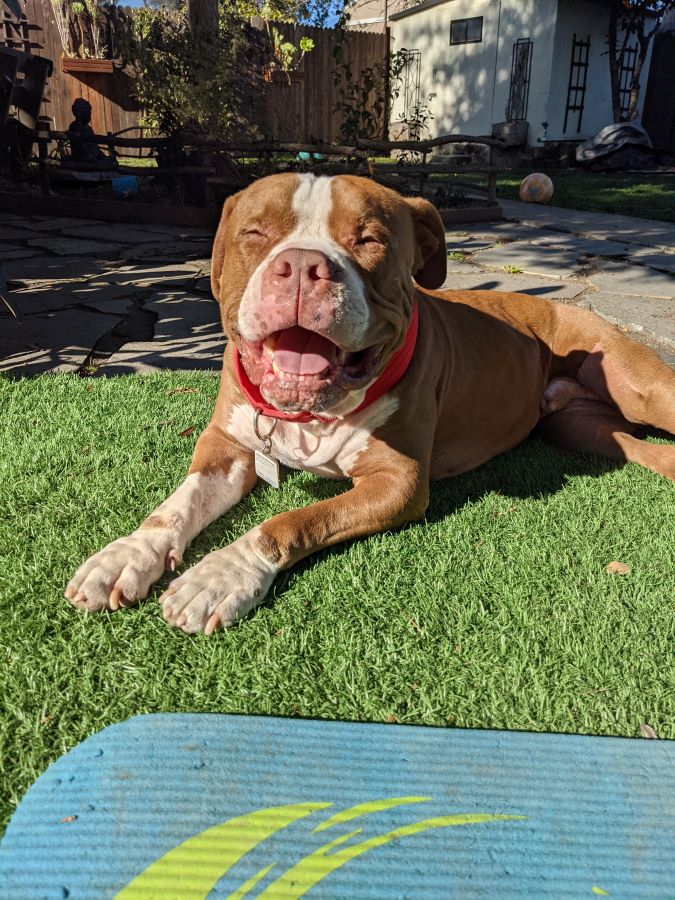
Last June, I went to the animal shelter in Stockton, California, and I met Monk. I overheard the shelter staff say, “there’s a senior dog, he’s shut down, he has a large mass,” and so I waited to meet him. I’d always wanted to foster, but I worked away from home. The shelter-in-place offered a chance to try it.
When the staff brought him to the yard, he was paralyzed with terror. His eyes reflected pain, abuse, and defeat. As I walked him, he showed the inklings of a smile, and I couldn’t bear to put him back in the kennel. I knew then that he was my first foster dog. He panted with relief on the car ride home, but he was afraid to leave his new safe space, and it took me five hours to get him out. His shelter name was “Hulk,” but we changed it to “Monk,” after the famous jazz-blues pianist, to fit his sorrowful, beautiful spirit.
The mass on Monk’s abdomen was diagnosed as skin cancer. He had other health issues, too – facial and leg scars, an ear infection, arthritis, broken teeth – but his tumor took priority. The surgery grew complicated when the vet discovered a lymph node lodged inside of it. After 36 hours at the vet, Monk came home with a giant blue donut that he wore around his head like a proud peacock. He had staples across his abdomen and down his leg, but his biopsy revealed that he was cancer-free. We ordered a dog cake to celebrate his resilience, and he shared it with his foster siblings, Syd and Stormy.
As the summer wore on, it became apparent that Monk is afraid of men. This was a particular issue with my boyfriend, Tom. Monk was wonderful with Tom’s six-year-old daughter. He was sweet and loving with Syd and Stormy. But he barked at Tom constantly. His bark was loud and ferocious. We worked with a trainer, but Tom was triggered by it, and it became a source of conflict in our home.
Tom and I are public high school teachers in communities with high levels of trauma. “Hypervigilance,” “fight or flight” – these are familiar terms to us. But Monk pushed us to reexamine how trauma surfaced in our relationship. As our trainer said to us, “You don’t always get the dog you want, you get the dog you need.” In couples therapy, we explored what Monk was teaching us about our tendencies to project old traumas onto each other, which impacted our communication and trust. We began to reflect differently on our defenses, and our commitment to work through them.
Monk has helped us heal, just as we helped him, and earlier this month, we decided to adopt him. He grows more playful and animated every day. We hope our love has shown him that there is so much good in the world for him. He is truly #monkstrong.